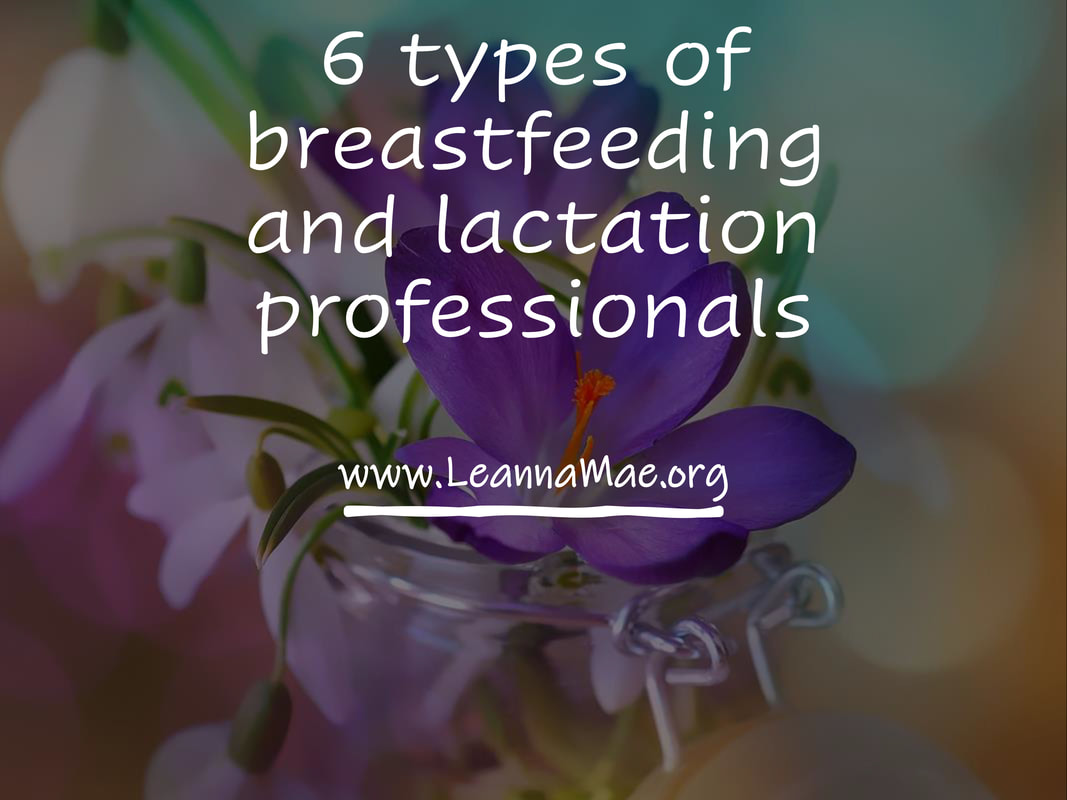|
There are 6 types of lactation support professionals. 1. There are breastfeeding medicine specialists. These are doctors who have additional training in lactation health. They are fellows of the Academy of Breastfeeding Medicine. This is a rare specialty. There are very few in the United States. 2. There are IBCLCs (International Board Certified Lactation Consultant). They have college education, clinicals, a board exam, required continuing education, and must recertify every 5 years. It is often said that IBCLCs are the gold standard of lactation professionals. The IBCLC was the first certificate for professional lactation support. This credential began in 1985. Click here to learn how to become an IBCLC. 3. There are lactation consultants that are qualified to do clinical-level lactation support but are certified through other programs (not IBCLC). For example, CLC, CBS, certified lactation consultants, and other lactation specialists are qualified to support breastfeeding mother-baby dyads. Whether they can only support uncomplicated cases or if they can also support high risk cases depends on the scope of practice set forth by their certifying body. This is a lower level than IBCLC. These programs are usually a stepping stone to IBCLC or can be as long as they qualify for the lactation education portion of the IBCLC requirement. Click here to see a list of lactation training programs in the USA. 4. There are also training programs with or without a certificate designed to be introductory add-on knowledge for professionals working in another role. Doulas may take a breastfeeding support course to better serve their doula clients. These programs are not in-depth enough to prepare professionals for managing lactation issues. They can provide education and support normal function such as getting breastfeeding established after birth. 5. Then there are peer counselors which are mom to mom support leaders. La Leche League is a very popular peer support. Breastfeeding USA is rising in popularity. You can get formal peer counseling through WIC and a few other organizations. 6. We also have breastfeeding/lactation educators whose training is specifically for teaching classes rather than doing 1 to 1 support. Which type of professional should you see???
If you are a healthy person who is pregnant and has breastfeeding questions, take a breastfeeding class. Read breastfeeding books. I can’t help but recommend mine, Lactation Lessons From Leanna. Attend support meetings such as La Leche League, Breastfeeding USA, or Baby Café USA. Make an appointment with any of the certified lactation professionals. It’s not necessary to see an IBCLC, but you need to find the person that’s right for you. If you are having common problems with breastfeeding, talk to an IBCLC or any certified lactation professional. If your baby is premature or has health problems, you need to talk to an IBCLC. If you have health problems, consult an IBCLC. If you have any rashes, lesions, discharge that is not milk, lumps, or bumps, go to your OB/Gyn. If you are interested in becoming a breastfeeding support professional, click on the following blogs.
0 Comments
Your comment will be posted after it is approved.
Leave a Reply. |
If this website has been a helpful resource to you, consider donating any dollar amount here.
Donations allow more time to write blogs and build this resource that is freely available to all.
Donations allow more time to write blogs and build this resource that is freely available to all.
Leanna Mae
Apostolic Pentecostal Christian
|
international author |
maternal-infant wellness educator
|
birth doula
|
breastfeeding specialist |
Copyright © 2013



